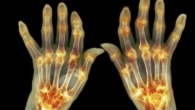
Mental rest: why it is needed and how to arrange it
0
We overload ourselves and we do not allow the brain to recover, and this affects mood, memory and productivity.
Why is it important to rest
We overload the brain with information< /strong>
During the day, the brain spends hours processing incoming information and conversations. If you don't let him relax, your mood, productivity, and health will suffer. That is why mental rest is so necessary – periods when you do not concentrate and do not interact with the outside world, but let your thoughts float in the clouds.
Now we allocate less and less for such relaxation. “People treat themselves like machines,” says Matthew Edland, director of the Center for Circadian Medicine in Florida. “They regularly overwork and overwork themselves.”
We believe that the best way to succeed is to be as productive as possible. But this approach can lead to the opposite result.
Think of that zombie-like state you fall into after a long meeting at work or a crazy day spent in trouble. You barely understand, forget important things, make mistakes and as a result do less than you intended. A constant hectic pace of life affects productivity, creativity and happiness.
“The brain needs to rest,” says Stewart Friedman, author of books on leadership and work-life balance. — After a break in mental activity, creative thinking works better, it's easier for you to make decisions, and you begin to enjoy your activity.”
We don't let the brain recover
The brain has two main modes of operation. The first is focused on events. Thanks to it, we concentrate on tasks, solve problems, and process incoming information. It is engaged when we work, watch TV, scroll through Instagram, or otherwise interact with information.
In addition, there is a network of the passive mode of operation of the brain (MPRRM). It turns on when we do not act, daydream or immerse ourselves. If you were reading a book and suddenly noticed that you do not remember the last two pages, it means that you have activated the MPRRM and you thought about extraneous things. In this state, you can be a watch, for example, during a walk in the forest.
MPRRM must be used every day: it helps the brain to recover. According to the neuropsychologist Mary Helen Immordino-Young, thanks to the MPRRM, we consolidate information, understand ourselves and what is happening in our lives. It is associated with good health and creativity.
It is the MPRRM that should be thanked for the spontaneous solution to the problem that was not given to us until we turned away from it. According to researchers, writers and physicists have at least 30% of their creative ideas when they are busy with something unrelated to work. On the other hand, MPRRM plays a significant role in the formation of memories. This actively happens right before falling asleep.
How to give yourself mental rest
Breaks should be taken several times during the day. Stewart Friedman advises to take a break every 90 minutes or so, or when you start to feel exhausted, unable to concentrate, stuck at work. “Most importantly, stop thinking that rest is a luxury that undermines your productivity,” says Immordino-Young. Just the opposite.
Do something that doesn't require mental effort
Washing dishes, working in the garden, going for a walk, cleaning and other similar activities are fertile ground for the activation of MPRRM. Usually we are ashamed to be idle and float in the clouds, but during such things you can mentally relax.
Put the phone down
Most people pick up the phone out of boredom. , but this habit takes away the opportunity to relax. Try to put your smartphone away and not be distracted by it. For example, when you are standing in line or waiting for someone. Pay attention to how you feel at the same time. Most likely, you will be nervous at first, but soon you will begin to pay attention to the world around you or immerse yourself in your thoughts.
Spend less time on social networks
Social networks are the main enemy of mental rest. In addition, they create an incorrect idea of someone else's life, because we only see an ideal picture. All of this, along with the upsetting news, is stressful.
Over the course of a few days, track how much time you spend on social media and how it makes you feel. Limit their time, for example, to 45 minutes a day. Or reduce the list of friends, leaving only those with whom you really like to communicate.
Be in nature more often
A walk in the park is more restorative than a walk in the city . In the urban environment, we are surrounded by distracting factors: traffic horns, cars, people. Birds singing, leaves rustling and other natural sounds, on the contrary, are soothing. In such conditions, it is easier to relax and let your thoughts go.
Notice Now
Try focusing on different muscles in your body. Give each muscle 10-15 seconds. Or every time you drink something, pay attention to the taste and sensation. Such actions are a small break for the brain.
Do what you love
Activating the MPRRM is not the only way to mentally rest. It is still useful to do favorite things, even if they require concentration. For example, reading, tennis, playing a musical instrument, going to a concert will also help you recover. Therefore, think about what types of activities give you energy and do not forget to allocate time for them.









Leave a Reply